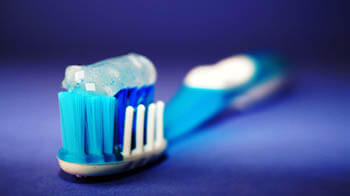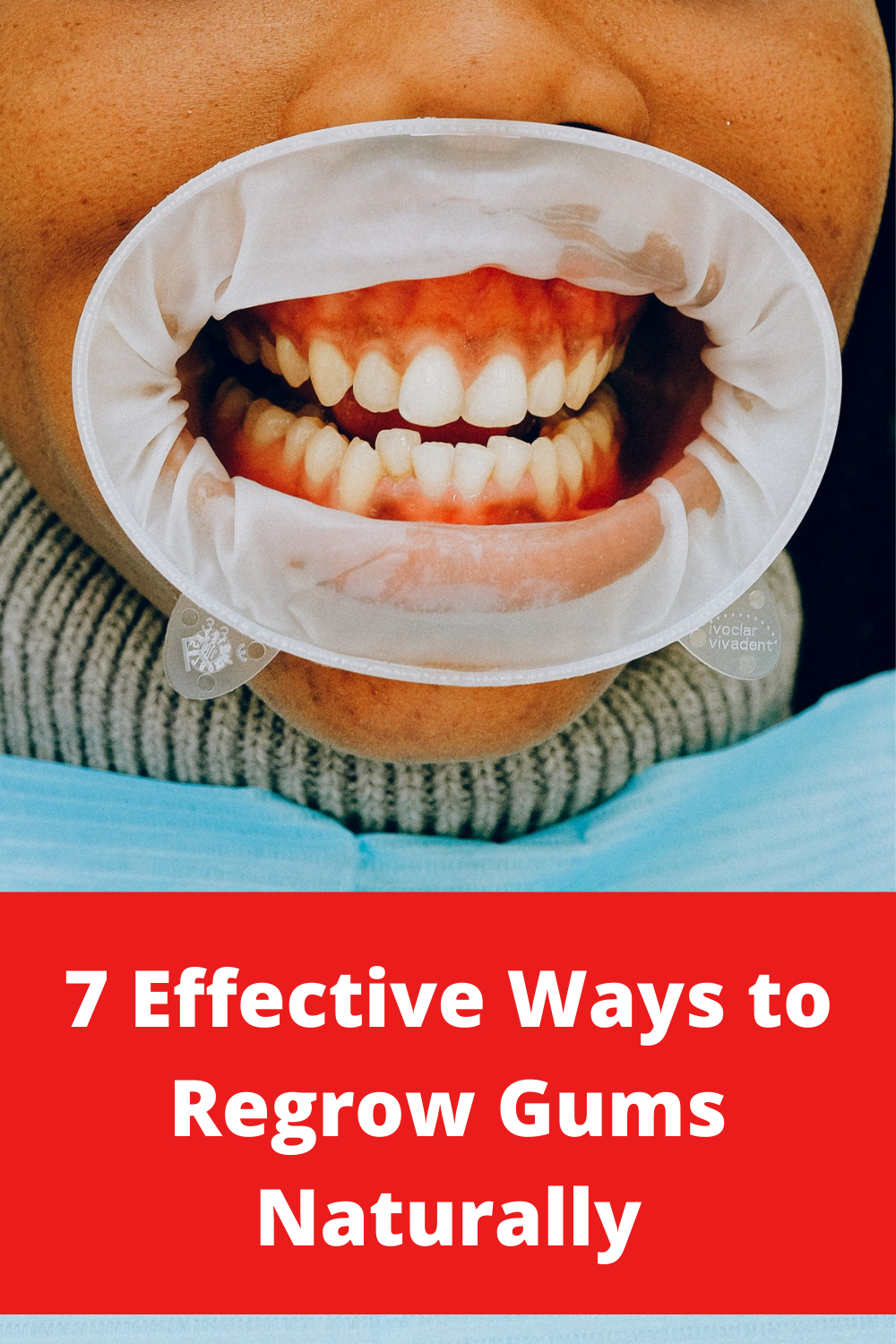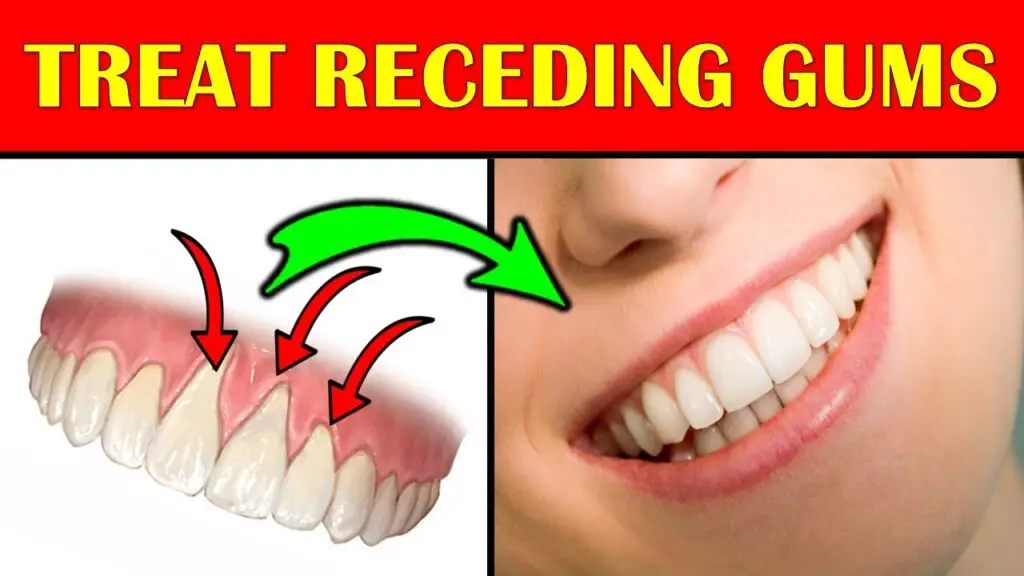Receding gums are a common problem that can develop as we age. As the name suggests, receding gums begin to wear away around the base of the tooth. You might notice that your gums are receding when the surface of your teeth seems bigger or longer than before.
While receding gums aren’t uncommon, it’s important to try and deal with the problem as soon as possible. Exposed gum roots can lead to tartar buildup and decay. A gap between the gums and teeth leaves room for infection, which can cause a whole raft of other problems.
Can receding gums grow back? The answer is no, which is why it's so important to prevent and treat receding gums while you can.
So, let’s discuss some causes of receding gums - and more importantly, how to treat them.
What Causes Receding Gums?
Receding gums can be caused by a number of different causes:
Improper brushing


This can mean brushing too hard, or not brushing enough. Letting plaque build up on your teeth can lead to receding gums, but brushing too hard can also cause problems. Vigorously brushing your teeth or using a stiff-bristled brush can rub away at the delicate gum line, and even begin to strip away some tooth enamel. When it comes to this type of oral treatment, balance is key.
Gum disease
Periodontal infections and gum disease can cause the gum line to lift and recede. While good oral hygiene is crucial to avoiding gum disease, it can have other causes, such as genetics.
Grinding or clenching teeth
Grinding teeth can cause a lot of problems, including wearing down the teeth over time. Grinding and clenching puts pressure on the teeth and can lead to receding gum tissue.
Tongue or lip piercings


You may not think about your gum health when you get a cool new piercing, but remember, that metal will likely be rubbing against your teeth and gum tissue every day. Over time, this can cause your teeth and gum line to wear down.
Of course, this is by no means an exhaustive list of receding gum causes. Genetics may play a role, as well as hormonal changes.
Signs of Receding Gums
Gums recede slowly, so you might not notice right away. In fact, some people may not notice that their gums have begun to recede until they develop an infection or the root of the tooth is exposed.
Some signs that your gums are receding can include toothache and sensitivity, or your tooth may appear longer than usual. If you’re not sure whether your gums are receding or not, it’s a good idea to speak to a dentist.
Natural Remedies to Regrow Gums
If you’ve noticed your gums receding, you should try and deal with it immediately. The longer you leave any treatment, the more chance you’ll have of developing some kind of infection. So, with no further ado, let’s take a look at several natural remedies you can try to reverse receding gums.
1. Brushing and Flossing


Good oral hygiene is the number one way to both treat and prevent gum recession. Proper brushing, regular flossing, and rinsing with mouthwash keep your teeth and gum line clean. This prevents infection or decay from setting in.
Especially if your gums have receded far up your tooth, you need to focus on preventing tooth decay, until the gums have regrown. Thorough tooth cleaning twice a day is vital. However, be sure not to brush too hard, as this can actually damage your teeth, and make the receding gums worse. It's best to use a soft-bristled brush when you can.
2. Salt Rinsing
If you’re concerned about infection, salt rinsing can be effective as an antibacterial cleanse. It’s also one of the simplest natural remedies on this list.
Mix about one tablespoon of salt into one cup of water, and stir well. Swish the saltwater around your mouth for around thirty seconds - but don’t swallow it! Rinsing your mouth with salty water can reduce bacteria and reduce your risk of infection, helping to avoid gum recession. You can do this two or three times a day, possibly alongside another treatment.
3. Oil Pulling


Oil pulling is a well-known treatment for all kinds of oral diseases. Start by choosing what kind of oil you want to use. Sesame oil is very popular, but coconut oil is also effective. Warm up the oil, and take the oil into your mouth, after brushing your teeth.
Swish the oil around your mouth. This drags the oil through and around your teeth. To start with, you should do this for a few minutes, but if you can’t, don’t worry. Start with just half a minute or so, and gradually build up your oil pulling time.
Ideally, to avoid gum recession, you should be pulling the oil for around fifteen to twenty minutes. This might seem a little unattainable at first, and it isn't the most pleasant of natural remedies, but you can build up this time gradually.


4. Green Tea


Jam-packed full of antioxidants, green tea is a nutritious beverage for countless reasons. Drinking green tea can also help to fight gum disease, usually along with another treatment. It can help strengthen your gums and teeth, as well as helping to fight inflammation in your gum tissue.
It’s a good idea to try and drink at least one cup of green tea a day. It’s refreshing, adds to your daily fluid intake, and it’s good for your health.
5. Aloe Vera


Aloe vera is well known for its healing properties, especially regarding burns and skin conditions. However, it’s also one of the best natural remedies for receding gums, thanks to its ability to prevent gum disease.
Aloe vera aids cell repairing, and it’s also an anti-inflammatory. You can use aloe vera gel to brush your teeth after you’ve conducted your usual oral care routine. Simply put a little gel on your toothbrush, and brush your gums and teeth for a few minutes. Rinse your mouth thoroughly afterward.
You can also use aloe vera as a mouthwash to reduce gum inflammation. Add aloe vera gel to water, until you’ve got a mixture that can be swished around your mouth. Rinse your mouth with the gel mixture for a few minutes, after you’ve brushed your teeth.
6. Omega 3 Fatty Acids


Healthy gums and teeth need plenty of nutrients. Your diet is important when it comes to preventing and treating receding gums. Treatments like oil pulling can help you to absorb more nutrients into your body.
Omega 3 fatty acids, commonly found in fatty fish and fish oil, are one of these necessary nutrients. In fact, omega 3 fatty acids can help receding gums repair themselves, as well as nourishing your whole body.
7. Other Treatments
While the previous six natural remedies for receding gums are the most commonly used and the most effective, there are other treatments you could try.
Use a eucalyptus oil paste to gently brush your teeth and gums, then rinse well.
Powdered myrrh can be mixed into a paste, and used to brush your gums and teeth to reduce gum inflammation. Rinse well afterward.
Apply 1-2 drops of anti-inflammatory clove oil, turmeric gel or tea tree oil to your gums to treat infection.
If you’re not sure which treatment would work best for you, why not speak to your dentist?
How to Prevent Receding Gums
We’d all agree that prevention is better than a cure. The best way to deal with receding gums is to keep our gums strong and healthy in the first place. While receding gums can be seen as a natural part of aging, it doesn’t have to be that way.
So, let’s discuss a few top tips to prevent gum disease and receding gums.
Good oral health


It can’t be overstated just how important oral health is when it comes to your gums and teeth. You should brush and floss regularly, but be sure not to brush too hard. Use a more soft than hard bristled brush, and use gentle, circular motions.
To prevent tooth loss, you should brush your teeth at least twice daily. If it’s not possible to brush right after meals, rinse out your mouth with water instead. This rinses away any food particles left after your meal. Mouthwash is a good way to gently cleanse the gums.
Eat good food
What we eat has a direct impact on our gums and teeth. Foods that are too hard, crunchy, or high in sugar can cause our teeth to erode and decay over time. Just like junk foods have a negative impact on our overall health, they can damage our teeth and gums, too.
Healthy food with plenty of vitamins and nutrients is the best way to go. This nourishes your body and your oral health. Caffeine and alcohol also aren’t good for your teeth.
While it’s perfectly fine to eat and drink these foods in moderation, making junk food a major part of your diet will have a noticeable impact on your health.
Consider taking vitamin supplements


Nutrient deficiencies can cause oral health problems, such as receding gums. If you think this could be the cause of your receding gums, why not speak to a doctor? They can prescribe the needed vitamins or minerals.
When to See a Dentist
Receding gums can be easily dealt with at home. However, if your gums are receding further, or not responding to treatment, it could be time to visit a dentist.
A dentist can inspect your teeth and identify the cause of your receding gums. For example, if you grind and clench your teeth at night, the dentist may recommend a mouthguard. Alternatively, they might help you to understand how your diet and oral hygiene routine impacts your gum health, or recommend a vitamin supplement, like omega 3 fatty acids. You might be advised to improve your brushing and flossing. You may even need surgical treatments or deep cleaning, such as scaling and root planing.
Regardless of how you treat receding gums, the most important thing is that you’re taking action. Receding gums don’t have to be a problem - but if left untreated, they will become a problem. Take a little time to brush up (pun intended) on your oral health.


